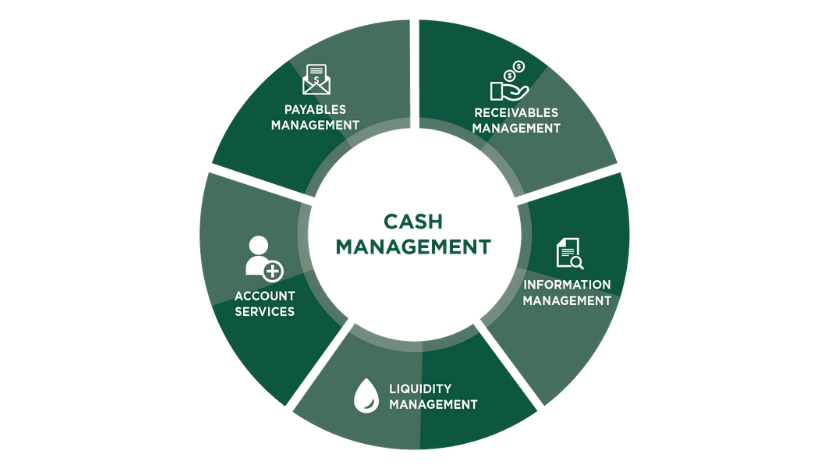Cash Flow Management: Secrets to Boosting Your Business
- Update Time : Friday, October 25, 2024

Cash flow management is the process of tracking and optimizing the amount of cash coming in and out of a business. Effective management ensures sufficient liquidity for operations and investments.
Navigating the financial currents of a business demands a keen understanding of cash flow management. It’s the lifeline of any enterprise, big or small. Mastering the art of cash flow enables companies to forecast future financial positions, avoid insolvency, and make informed decisions.
It’s not merely about monitoring dollars and cents; it’s about strategic planning and execution to maintain a healthy balance between income and expenditures. By maximizing the efficiency of cash flow, businesses can improve their agility, reduce costs, and capitalize on new opportunities. This financial discipline is pivotal for sustaining growth and achieving long-term success.
Introduction To Cash Flow Management
Cash flow management is crucial for any company’s health. It tracks how money moves in and out of a business. Effective cash flow management ensures that a business has enough funds for daily operations. It also helps in planning for future growth.
Understanding cash flow helps businesses avoid financial challenges. It’s vital to know when, where, and how your money is being spent. Positive cash flow means a company is thriving. Negative cash flow can signal trouble ahead.
| Concept | Importance |
|---|---|
| Monitoring | Keeps track of cash usage |
| Liquidity | Ensures bills are paid on time |
| Investment | Funds growth opportunities |
| Planning | Prepares for future expenses |
Analyzing Cash Flow Patterns
Assessing cash flow patterns is crucial for a healthy business. Regular analysis helps identify trends and cash flow cycles. Companies use different assessment techniques to ensure accuracy.
Key methods include historical analysis, which reviews past data, and comparative analysis, contrasting your data with industry standards. Monitoring accounts receivable turnover is also essential.
For predicting future cash flow, firms use projections and forecasting models. These models consider various factors such as seasonal fluctuations and market trends. Reliable predictions support strategic decision-making.
Practical Budgeting Strategies
Creating a budget helps track where money goes. Start by listing all income sources. Next, jot down monthly expenses. Divide expenses into fixed (same each month) and variable (change monthly). Aim to save a part of income regularly. Use apps or spreadsheets for help.
Budget monitoring means checking the budget often. It helps spot spending habits. Maybe eating out less saves money. Or, finding cheaper fun activities. Update the budget if income or expenses change. This keeps spending in check and savings growing.

Credit: peoplesbankal.com
Effective Invoicing Tactics
Prompt Payment Incentives encourage customers to pay their bills early. Offering small discounts can motivate quicker payments. This strategy improves cash flow for businesses. For example, a 2% discount for payments within 10 days can be effective.
Automating the Invoicing Process saves time and reduces errors. Using software, businesses can send invoices quickly. This method ensures invoices arrive on time, every time. It also allows for easy tracking of payments. Clients appreciate the convenience, leading to faster payments.
Expense Optimization
Expense optimization is key to maintaining healthy cash flow. Identifying and eliminating unnecessary costs can free up capital. This allows businesses to invest in areas that yield higher efficiency. Regularly reviewing expenses ensures that money is spent wisely. Negotiating with suppliers can lead to significant savings. Switching to cost-effective alternatives also helps in reducing expenses. Training employees on cost-saving practices is essential. Use technology to automate processes. This minimizes waste and optimizes resource allocation. Remember, small savings can accumulate to a substantial amount.
Debt Management And Negotiation
Effective cash flow management often hinges on smart debt structuring. It’s crucial to balance short-term and long-term liabilities to maintain financial health. This balance helps in reducing overall interest costs while ensuring the availability of funds for business growth.
Securing favorable terms with lenders can ease financial pressure. Tactics include negotiating lower interest rates and obtaining flexible repayment schedules. This can result in improved cash flow and a stronger bargaining position for future financial dealings. Building a solid relationship with lenders is key for successful negotiations.
| Debt Type | Objective | Strategy |
|---|---|---|
| Short-term | Lower Costs | Bargain for reduced rates |
| Long-term | Stability | Seek fixed interest rates |
Boosting Income Streams
Diversifying revenue is key to financial stability. By expanding into new markets or adding services, businesses can create multiple income streams. This approach reduces reliance on a single source, buffering against market fluctuations.
Upselling and cross-selling techniques are effective for increasing sales. Offering premium products or complementary services encourages customers to spend more. Training staff to recognize opportunities for upselling can significantly boost revenue.
Harnessing Technology For Cash Management
Fintech solutions make managing money easier. They allow quick access to financial data. This helps businesses make informed decisions. With real-time analytics, companies understand their cash flow better.
Mobile payment systems are changing how we handle money. They offer convenience and speed. People can pay for services or products from anywhere. This is great for businesses. It means getting money faster. This improves cash flow.
Preparing For Cash Flow Challenges
Ensuring adequate emergency funds is crucial for businesses. These reserves help companies survive unexpected financial downturns. Separate savings accounts or liquid assets are recommended for quick access during emergencies. Regular contributions to these funds safeguard against unforeseen expenses.
Effective scenario planning involves analyzing potential financial challenges. It encourages proactive thinking about solutions. By preparing for various outcomes, businesses can develop strategies to maintain positive cash flow. This includes assessing risks and identifying steps to mitigate them. A well-crafted plan ensures readiness for any economic situation.

Credit: www.youtube.com
Conclusion: Building A Resilient Cash Flow System
Building a resilient cash flow system needs constant attention. Firms must embrace continuous improvement to thrive. Regularly evaluating financial processes is key. This ensures agility in responding to market changes. Staying agile helps in adapting to unexpected financial shifts.
Adapting new technologies can streamline operations. It is crucial for maintaining a healthy cash flow. Real-time data analysis aids in making informed decisions. This can lead to more strategic financial planning. Always be ready to adjust strategies to sustain cash flow.

Credit: bridgepointconsulting.com
Frequently Asked Questions
What Is Cash Flow Management?
Cash flow management is the process of monitoring, analyzing, and optimizing the net amount of cash that moves in and out of a business. Effective cash flow management ensures a company has enough liquidity to meet its obligations.
Why Is Managing Cash Flow Important?
Managing cash flow is crucial for the survival of any business. It helps prevent cash shortages, enables companies to meet financial obligations on time, and provides the ability to invest in growth opportunities.
How Can Businesses Improve Cash Flow?
Businesses can improve cash flow by speeding up receivables, delaying payables without penalty, optimizing inventory levels, and carefully monitoring their spending to avoid unnecessary expenses.
What Are Cash Flow Management Techniques?
Cash flow management techniques include cash flow forecasting, budgeting, reducing costs, managing inventory efficiently, and utilizing cash flow statements to analyze and make informed financial decisions.
Conclusion
Effective cash flow management is the lifeblood of any thriving business. By prioritizing timely invoicing, expense tracking, and forecasting, companies can navigate financial challenges with confidence. Remember, staying proactive in your financial strategy ensures stability and growth. Let’s keep the cash flowing and businesses growing.

















Leave a Reply